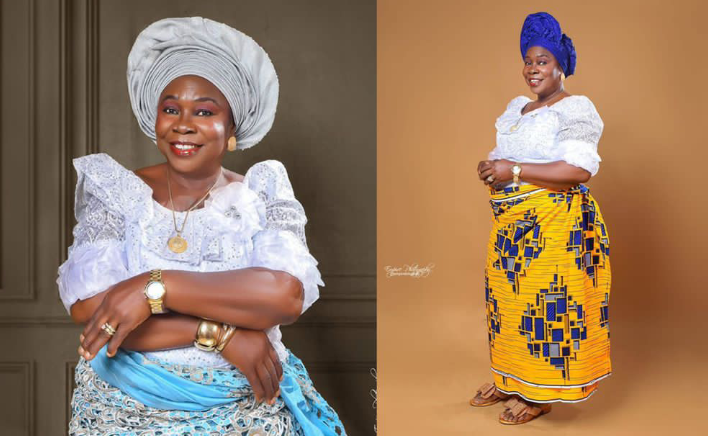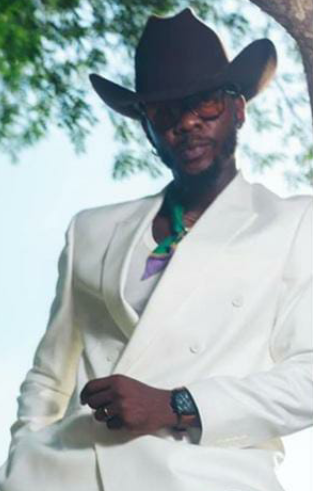
“At Your Old Age, You Don’t Know How to Manage Your Marital Affairs” — Etinosa Slams Ned Nwoko Over Regina Daniels Remarks
In what has quickly become one of the most talked-about exchanges in Nigerian entertainment and social media circles this week, actress Etinosa Idemudia did not hold back in criticizing billionaire politician Ned Nwoko over comments he allegedly made about his wife, Regina Daniels. The controversy erupted at a recent public
In what has quickly become one of the most talked-about exchanges in Nigerian entertainment and social media circles this week, actress Etinosa Idemudia did not hold back in criticizing billionaire politician Ned Nwoko over comments he allegedly made about his wife, Regina Daniels. The controversy erupted at a recent public event, where Nwoko’s words apparently stirred public debate and drew sharp rebukes from both fans and fellow celebrities. Etinosa, never one to shy away from expressing her opinions, took to social media with a fiery response that has since gone viral.
In a statement that captured the attention of her followers, Etinosa openly chastised the Senator, questioning the relevance and maturity of his remarks. She wrote, “The more you try to embarrass the mother of your children, the more you embarrass yourself. Don’t you know? Look at Nigerian senator. In these trying times in Nigeria, is this your top priority? At your old age, you don’t know how to manage your marital affairs. Carry microphone sir. Shame hide me for Oluwanaira bathroom. Tuehhhh.” The post, full of her signature humor and bluntness, highlighted her disbelief that someone of Nwoko’s stature and experience could focus on what she described as “childish” public commentary rather than pressing national issues.
The dispute centers on Regina Daniels, the Nollywood actress who married Nwoko, a man several decades her senior, and has been at the center of public scrutiny since their marriage. Although the exact nature of Nwoko’s comments that prompted Etinosa’s reaction remains somewhat unclear, the backlash online suggests they were perceived as unnecessarily critical or demeaning toward Regina. Etinosa’s post was a mix of admonishment and satire, and it clearly resonated with a public increasingly concerned about accountability and maturity among influential figures.
Etinosa, who has built a reputation for candidly addressing social issues and celebrity controversies, emphasized that Nwoko’s public airing of personal grievances or criticisms was not only inappropriate but also untimely. With Nigeria facing numerous social, economic, and political challenges, she questioned the priorities of a man who, in her view, should be focusing on more impactful matters. Her commentary struck a chord with many Nigerians who often express frustration at the apparent disconnection of the elite from the everyday struggles of ordinary citizens.
Social media reactions were immediate and overwhelmingly supportive of Etinosa’s stance. Twitter, Instagram, and Facebook were flooded with comments echoing her sentiment that public figures, especially those with immense wealth and political influence, should lead by example. Many netizens called her response “refreshing” and “courageous,” applauding her willingness to challenge what they perceive as double standards in celebrity behavior. Hashtags referencing the exchange began trending, with fans and critics alike debating the appropriateness of Nwoko’s comments and the audacity of Etinosa’s reply.
What makes Etinosa’s intervention particularly noteworthy is her ability to blend humor with pointed critique. The playful tone of phrases like “Carry microphone sir. Shame hide me for Oluwanaira bathroom” underlined the absurdity she sees in Nwoko’s actions, while simultaneously delivering a serious message about respect, discretion, and the public responsibilities of prominent individuals. By combining satire with sharp social commentary, Etinosa ensured that her critique was not only widely shared but also difficult to ignore.
This incident also reignites ongoing debates about age gaps, power dynamics, and the treatment of women in high-profile relationships in Nigeria. Regina Daniels, who married Nwoko at a young age, has often faced scrutiny and criticism that her peers rarely encounter. Etinosa’s intervention, therefore, serves as more than just a rebuke; it is a defense of respect and dignity for women, highlighting the unnecessary pressures placed on women in relationships where power and wealth imbalances exist. Her message resonates beyond this single incident, touching on larger societal issues of gender equality, public accountability, and the treatment of women in both private and public spheres.
While Nwoko himself has not publicly responded to Etinosa’s comments as of now, the exchange has sparked broader conversations among Nigerians about civility, public conduct, and the responsibility of public figures to set a positive example. Observers note that in an era dominated by social media, every word and action by celebrities and politicians is amplified, leaving little room for personal disputes to remain private. Etinosa’s post, therefore, is not just a personal opinion; it is a reflection of societal expectations for accountability, maturity, and respect in public discourse.
The timing of her intervention is also telling. With Nigeria facing numerous socio-political challenges, citizens are increasingly critical of leaders and influencers who appear more focused on personal drama than on contributing to meaningful solutions. Etinosa’s pointed questioning — asking if this was Nwoko’s “top priority” — encapsulates a growing sentiment among the public: that leaders and prominent figures should channel their energy into addressing national and community concerns rather than indulging in trivial disputes.
This exchange also underscores the evolving role of celebrities as social commentators in Nigeria. Figures like Etinosa have leveraged their platforms to call out perceived injustices, highlight societal issues, and even challenge established power structures. By openly criticizing Nwoko, she positions herself as someone willing to speak truth to power, reinforcing her image as a fearless advocate for common sense, fairness, and the protection of those who may be unfairly targeted or maligned in the public eye.
Ultimately, this incident is about more than just a feud between Etinosa and Nwoko. It reflects ongoing tensions in Nigerian society surrounding gender dynamics, celebrity influence, and public accountability. Etinosa’s post resonates because it combines humor, moral clarity, and social critique in a way that few public interventions manage. Her message is unambiguous: no matter one’s age, wealth, or status, there are lines that should not be crossed, particularly when it comes to respecting family, dignity, and public sensibilities.
As social media continues to be the stage where public opinion is formed and expressed, exchanges like this serve as a reminder of the power of words and the scrutiny that comes with public life. Etinosa’s rebuke of Ned Nwoko will likely be remembered not just as a moment of celebrity drama, but as an example of how influence can be wielded to challenge inappropriate behavior and champion fairness and respect in society. Whether Nwoko responds or remains silent, the conversation she sparked is already shaping public perceptions and setting expectations for how prominent figures should conduct themselves, both privately and publicly.
In a world where celebrity actions are constantly scrutinized and dissected, Etinosa Idemudia’s fearless commentary has cemented her position as one of Nigeria’s most outspoken and influential voices. Her willingness to confront a billionaire politician over perceived missteps signals a new era of accountability, one in which wealth and status do not shield individuals from public criticism. As the discussion unfolds, one thing is clear: Nigerians are paying attention, and they are ready to call out behavior that falls short of the maturity, respect, and responsibility expected of those in the public eye.
Share this post
Related Posts

“It’s Not About the Money” — Woman Shares How Her Mother Preferred a Photoshoot and Facebook Post Over Huge Cash Gift
A Nigerian woman identified as Ikpemosi, with the handle @Toriaa, has set social media abuzz...

“Fame Is Boring, My Heart Is Still in the Trenches” — Victor Osimhen’s Powerful Words Stir Emotions Online
Super Eagles striker and global football sensation Victor Osimhen has once again reminded the world...

Frank Itom Issues Fiery Warning to Married Men Sliding Into His DMs: “I’ll Find Your Wife and Send It to Her
In a dramatic online outburst that has quickly ignited conversations across social media, content creator...